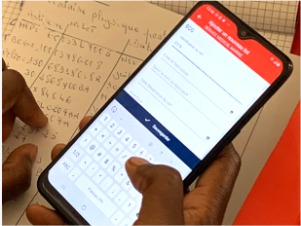Media
Adapting public health capacity-building interventions in the Covid-era via collaborative digital learning solutions and platforms: Lessons Learned
As a result of the Covid-19 pandemic, countries have since instituted movement and crowd restrictions via a series of lockdowns and curfews designed to curtail the spread of the virus. The repercussive effects have also been felt in the public health capacity-building space. There has been a paradigm shift from face-face learning to the use of diverse digital technologies. Organisations must step up to the challenge of ensuring that their staff remain appropriately skilled to manage pre-existing public health challenges and those posed by the pandemic. As face to face meetings grind to a halt, handholding must shift to digital technologies that allow for collaboration and quick technical assistance.
Empower School of Health has expertise in developing end-to-end solutions for digital learning, from developing technical content, digitization of content (storyboarding, authoring), deploying content on a Learning Management System (LMS), to sales, marketing and management of the course. We developed our own learning platform and extended our services to organizations in health, humanitarian and several private sectors. In Senegal, Empower, in collaboration with Logistimo and Gavi, supports Senegal’s Ministry of Health & Social Action to train healthcare staff in hospitals and clinics across the country to adopt an innovative digital service that will help reduce wastage and improve efficiency across the supply chain.

The Vaccines Supply Chain Management Pilot has demonstrated several improvements in the vaccine stock and inventory management and users of the digital application and platform have left glowing reports on how the pilot has resulted in increased efficiency in their vaccine supply chains. To improve the uptake and use of the digital service, users in Dakar Sud district, Senegal created a WhatsApp group to allow for ease of communication and rapid assistance. This WhatsApp group is used for:
This case study demonstrates the need for agile learning platforms that not only allow for capacity-building via one-sided studying of courses and knowledge resources, but also allows for peer-peer collaboration, as well as technical assistance from relevant domain experts. Empower has developed and deployed such platforms and is currently scaling these solutions across Asia and Africa.
